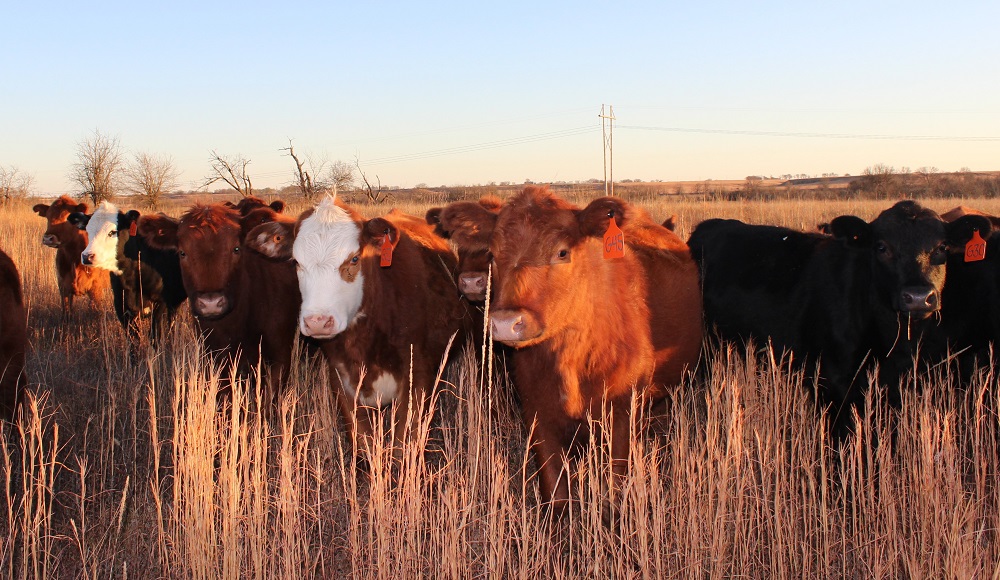
Agricultural News
Secretary Perdue Announces Groundbreaking Proposal to Transfer Agricultural Animal Biotechnology Regulatory Framework to USDA
Mon, 21 Dec 2020 12:06:29 CST
 Today, U.S. Secretary of Agriculture Sonny Perdue announced a significant step in modernizing regulations of agricultural animals modified or produced by genetic engineering. The U.S. Department of Agriculture (USDA) will be moving forward with an Advanced Notice of Proposed Rulemaking (ANPR) to solicit public input and feedback on a contemplated regulatory framework that would modernize our system into a scientifically-sound, risk-based, and predictable process that facilitates the development and use of these technologies for U.S. farmers and ranchers under USDA's authorities. This initiative follows President Donald Trump's Executive Order on agricultural biotechnology that called upon federal agencies to make regulatory improvements to rectify some of the long-standing barriers to innovation for U.S. agriculture.
Today, U.S. Secretary of Agriculture Sonny Perdue announced a significant step in modernizing regulations of agricultural animals modified or produced by genetic engineering. The U.S. Department of Agriculture (USDA) will be moving forward with an Advanced Notice of Proposed Rulemaking (ANPR) to solicit public input and feedback on a contemplated regulatory framework that would modernize our system into a scientifically-sound, risk-based, and predictable process that facilitates the development and use of these technologies for U.S. farmers and ranchers under USDA's authorities. This initiative follows President Donald Trump's Executive Order on agricultural biotechnology that called upon federal agencies to make regulatory improvements to rectify some of the long-standing barriers to innovation for U.S. agriculture.
"Our livestock producers need all the tools in the toolbox to help protect against animal diseases and continue to meet the challenge of feeding everyone now and into the future. If we do not put these safe biotechnology advances to work here at home, our competitors in other nations will," said Secretary Perdue. "Science-based advances in biotechnology have great promise to continue to enhance rural prosperity and improve the quality of life across America's heartland and around the globe. With this effort, we are outlining a pragmatic, science-based, and risk-based approach that focuses on potential risk to animal and livestock health, the environment, and food safety in order to provide our farmers and ranchers the tools they need to continue to feed, clothe and fuel the world."
Livestock producers and researchers have expressed frustration over the Food and Drug Administration's handling of agricultural animals modified or produced by genetic engineering- the CATO Institute authored in their Winter 2017-2018 publication "Regulation" a look at the aggressive takeover of biotech animals by the Agency saying "This oversight misguidedly extends a regulatory regime designed specifically for the approval of new animal drugs to the regulation of the animals themselves. This sophistic and wrong-headed approach has resulted in regulatory paralysis and the near annihilation of an entire once-promising genetic engineering sector in which the United States was poised to be preeminent."
The author of this analysis says the FDA took over the regulation of such animals in 2009 when the Agency declared that its Center for Veterinary Medicine would regulate such animals like they were "new animal drugs" such as antibiotics, pain relievers, or flea medicines.
US researchers have been left behind by others outside this country because of the battle between USDA and FDA since that time. This ANPR will transition portions of FDA's pre-existing animal biotechnology regulatory oversight to USDA.
Background
Last year, President Trump directed federal agencies to modernize the regulatory framework for agricultural biotechnology products by establishing regulatory approaches proportionate to the product's risks, avoid unjustified distinctions across similar products, and promote future innovation and competitiveness. USDA will publish an ANPR on animal biotechnology as a keystone effort in fulfilling this Executive Order.
This ANPR will transition portions of FDA's pre-existing animal biotechnology regulatory oversight to USDA. USDA will consult with FDA to ensure our reviews benefit from FDA's expertise, while providing developers with a one-stop-shop for their products at USDA. USDA looks forward to FDA experts participating in the development of our review process.
Through this ANPR, USDA is proposing to establish a flexible, forward-looking, risk-proportionate and science-based regulatory framework that provides a predictable pathway to commercialization and keeps pace with advances in science and technology for certain farm animals (cattle, sheep, goats, swine, horses, mules, or other equines, catfish, and poultry) developed using genetic engineering intended for agricultural purposes.
USDA's proposed safety review would cover molecular characterization, animal health (including noninfectious, infectious, and zoonotic diseases), efficacy (for disease and pest resistance traits), environmental considerations, food safety evaluation of any expressed substance (including allergenicity and compositional analyses of key components), and food storage and processing. USDA's proposal would provide end-to-end regulatory oversight from pre-market reviews through post-market food safety monitoring of animals. USDA will continue to coordinate closely with the FDA to fulfill oversight responsibilities and provide the appropriate regulatory environment, ensuring the safety of products derived from new technologies, while fostering innovation at the same time.
Under the regulatory framework being contemplated, USDA would provide regulatory oversight from pre-market reviews through post-market food safety monitoring for certain farm animals developed using genetic engineering. USDA would promulgate regulations using the authorities granted to the Department through the Animal Health Protection Act (AHPA), the Federal Meat Inspection Act (FMIA), and the Poultry Products Inspection Act (PPIA). Pursuant to these authorities, the Animal and Plant Health Inspection Service (APHIS) would conduct a safety assessment of organisms developed using genetic engineering that may increase an animal's susceptibility to pests or diseases of livestock, including zoonotic diseases, or ability to transmit the same. The Food Safety and Inspection Service (FSIS) would conduct a pre-slaughter food safety assessment to ensure that the slaughter and processing of animals developed using genetic engineering would not result in a product that is unsound, unhealthful, unwholesome, or otherwise unfit for human food.
WebReadyTM Powered by WireReady® NSI
Top Agricultural News
More Headlines...





